Hansda Sowvendra Shekhar is a name that resonates deeply within Indian literature, especially because of his uncompromising account of the lives and struggles of the Adivasis (indigenous people).
Shekhar, being an Indian tribal writer, has made an independent niche by incorporating narratives in which these cultural, social, as well as the ecological complexity of the Santhal community of Jharkhand have been touched. His writing is full of authenticity and empathy, so his work raises the condition of marginalized voices and goes against social norms.
This article of Vitatales delves into Hansda Sowvendra Shekhar biography, his distinguished books, the controversy in his banned book, and the impacts he made in Indian literature that have remained to last in Indian literature.
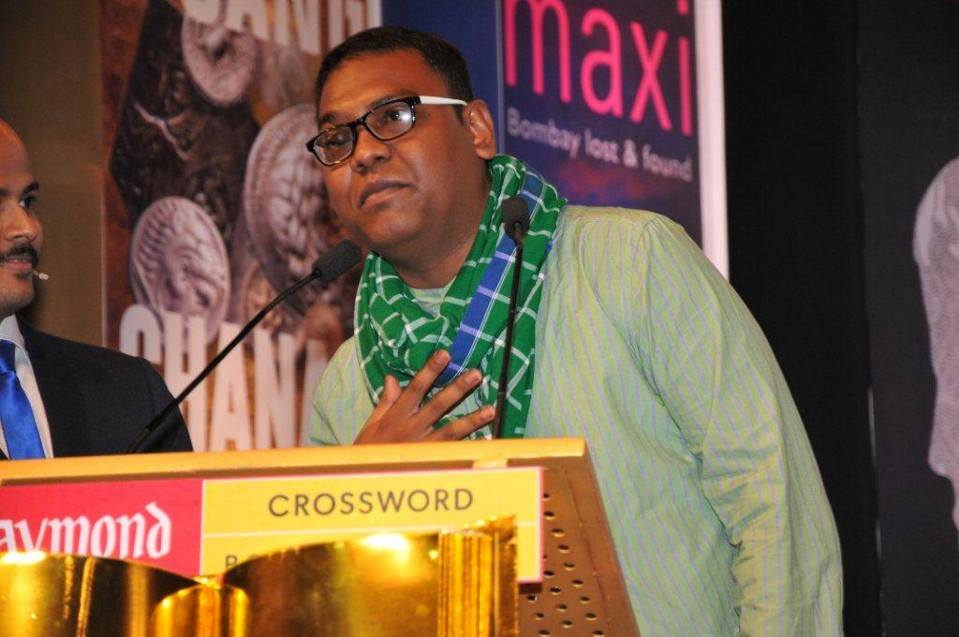
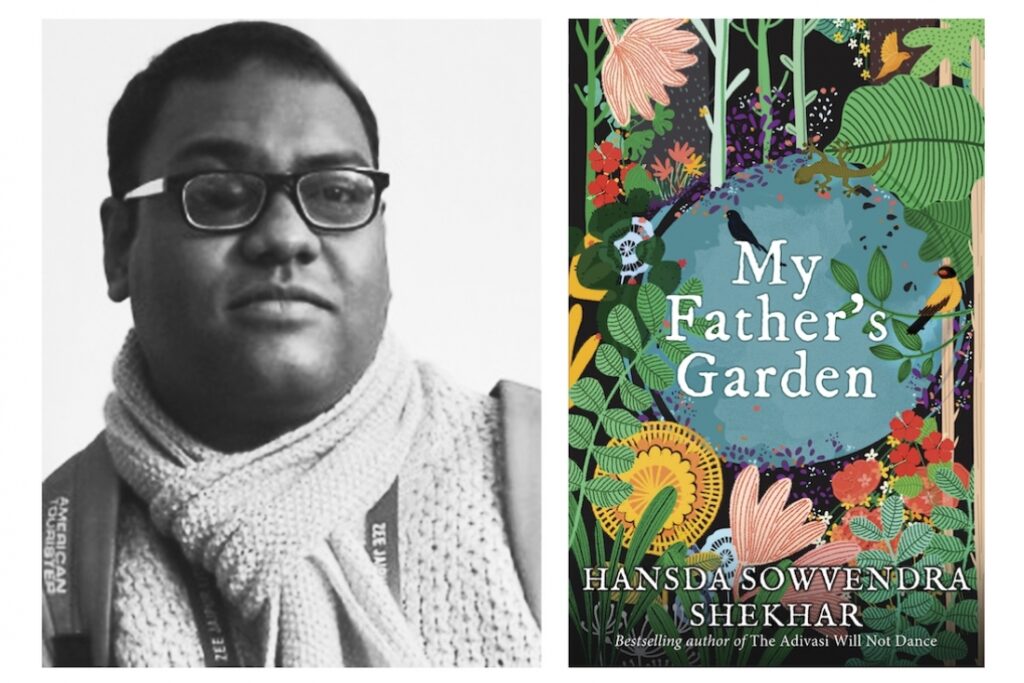
Hansda Sowvendra Shekhar Biography
The life of Hansda Sowvendra Shekhar is a colorful mosaic of various titles, including doctor, writer, and translator. Shekhar was born in the year 1983 to a Santhal family in the state of Ranchi, Jharkhand, which is a major Adivasi group in India. As an author himself, he has been a part of Indian tribes, which has greatly influenced the way that he writes his stories, as they are a committed mix of insider and outsider knowledge.
Having studied as a physician, Shekhar harmonizes her work as a doctor with her literary activities and frequently uses medical topics in her stories. In his works, he is renowned for presenting an eloquent picture of tribal life, and he addresses such matters as displacement, identity, and systemic marginalization.
Early Life and Education
Shekhar was relatively well off in terms of growing up in an industrial town Ghatsila of Jharkhand, and being brought up studying in an English medium school. But his life during the times of work with the Santhal community, especially his experience as a medical officer of the Pakur area, changed his vision of the world. This in-between two worlds, privileged and confronted with the facts of Adivasi life, puts an interesting twist of the insider-outsider on his writings.
Hansda Sowvendra Shekhar Journalist and Doctor
In addition to writing, Shekhar works as a medical doctor, commonly known as Dr. Hansda Sowvendra Shekhar. He comes out with authenticity in his stories due to his medical life experience, especially when using cases of health and societal problems.
He is also a contributor to journalism, having published short stories and essays in such publications as The Caravan. His complex work life as a physician and an author, and a translator shows that he has been passionate about emphasizing the narrative of marginalized groups in diverse forms.
Hansda Sowvendra Shekhar Books: A Literary Journey
Hansda Sowvendra Shekhar’s books are evidence of his success in transferring the concerns of Adivasi life to paper. In his bibliography, one can find works in the form of novels, collections of short stories, children’s books, as well as translations, and they all fit in the discussion of indigenous life in India.
Novel Written by Hansda Sowvendra Shekhar
Shekhar has authored three novels for adults: The Mysterious Ailment of Rupi Baskey (2014), My Father’s Garden (2018), and I Named My Sister Silence (2023, translated from Hindi). His first novel, The Mysterious Ailment of Rupi Baskey, is popularly termed as the first full-fledged Santhal novel in the English language published by a commercial publishing house.
It brings into play the life of a middle-aged Santhal woman called Rupi Baskey, who suffers from an inexplicable illness and is battling social antagonists in her village. In 2015, the novel received the Sahitya Akademi Yuva Puraskar and has received shortlist nominations for awards, such as The Hindu Literary Prize and the Crossword Book Award.
My Father’s Garden Hansda Sowvendra Shekhar
The other important novel by Shekhar was published in 2018, and it is titled My Father’s Garden. It is a first-person narration written by a young doctor about romantic relationships and societal problems in Jharkhand. The novel structurally comprises three parts such as Lover, Friend, and Father, all focusing on the theme of love, betrayal, and family.
It has been hailed by critics as emotionally intense and also artistically vivid with its prose, capable of condensing more emotion, detail, and narrative substance than longer works. It was a finalist in the JCB Prize of Literature in 2019, further establishing Shekhar as a big-time talent in Indian fiction.
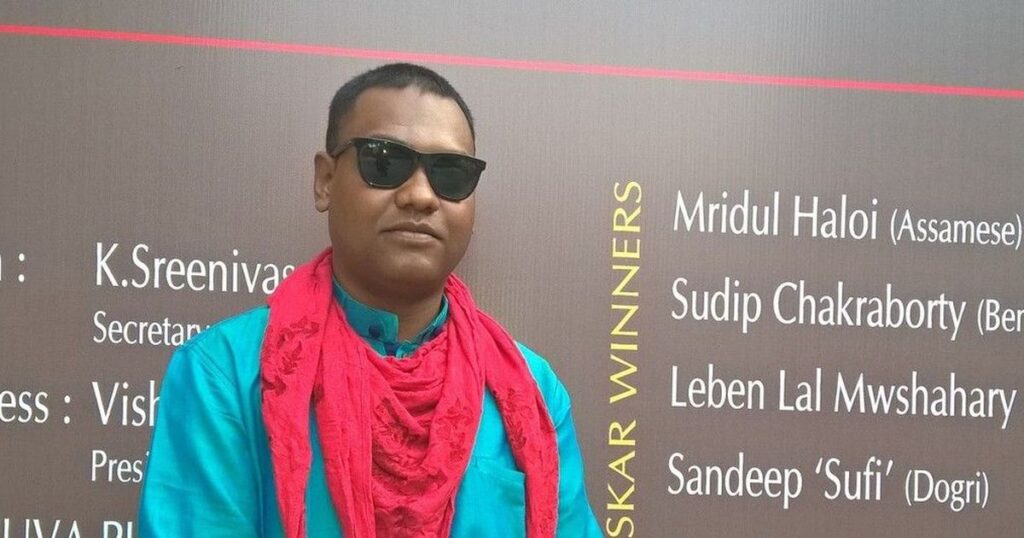
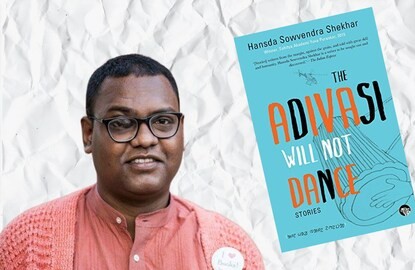
Children’s Books and Translations
Shekhar can also be found in his children’s literature, including Jwala Kumar and the Gift of Fire: Adventures in Champakbagh (2018, reprinted in 2021 as The Dragon Who Came to Champakbagh) and Who’s There? (2020). These books combine fable-type tales with culture, thus reaching younger readers.
Also, English is the language in which Shekhar translated the work by the Indian writer Manoj Rupda Kaale Adhyaay as I Named My Sister Silence (2023), which received such awards as the shortlist of the JCB Prize for Literature 2023, as well as being nominated for the 2024 Crossword Book Award in the Translation category.
Hansda Sowvendra Shekhar The Adivasi Will Not Dance: A Bold Narrative
The Adivasi Will Not Dance: Stories (2015) is the second book by Shekhar, a series of short stories deriving in Santhal communities of Jharkhand. It is an influential brood on Adivasi resistance, which touches upon such themes as displacement, poverty, and the influence of industrialization.
What Is the Main Message of The Adivasi Will Not Dance?
The central theme of The Adivasi Will Not Dance is the reproach of the systematic abuse of the Adivasi population, especially modernization and eviction. This is acutely realised in the title story, where a troupe of Santhals is not willing to dedicate a celebratory dance to a power plant, which is dislodging their lives.
Shekhar points to the loss of land, culture, and dignity and insists on rejecting the oppressive development. Remarkably, the compilation also deals with gender relations, poverty, and the conflict between tradition and the modern world, which makes it an unreserved testament of marginal existence.
Hansda Sowvendra Shekhar Banned Book
In August 2017, the film received a lot of controversy after the Jharkhand government had banned it, on the grounds of depicting a negative image of Adivasi women and Santhal culture. Shekhar also lost his employment as a medical officer, which many claimed was an assault on artistic freedom. Political parties and academics have initiated the ban, which raised questions on censorship and the portrayal of marginalized groups.
Indeed, as Shekhar documented himself, there was a personal cost to the ban, especially the harassment on social media, yet he went ahead and wrote even during his Suspension. Due to popular pressure from the literary community, the ban was lifted in December 2017, and Shekhar was reinstated in 2018.
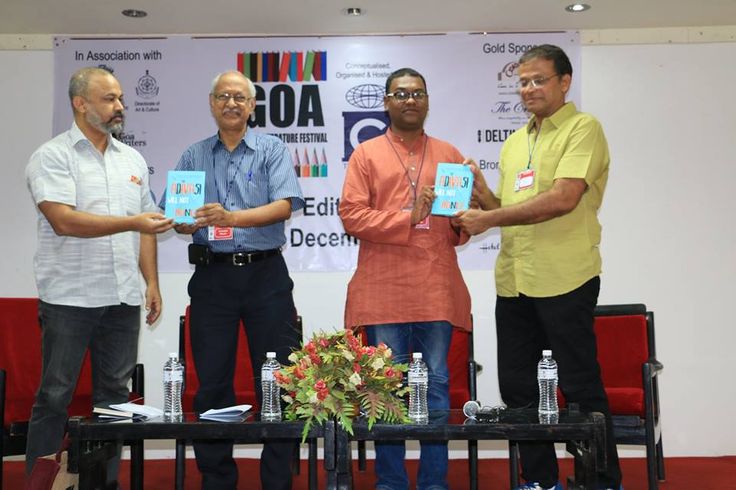

Hansda Sowvendra Shekhar Achievements and Literary Awards
Shekhar has earned Indian literature several awards in recognition of his work, making him an important part of Indian literature in contemporary fiction.
Hansda Sowvendra Shekhar Literary Awards
In 2015, the Sahitya Akademi Yuva Puraskar was awarded to his first novel, The Mysterious Ailment of Rupi Baskey, and in 2015, it was also co-winner of the Muse India Young Writer Award. The novel also made it to the 2014 Hindu Literary Prize, was shortlisted in the 2014 Crossword Book Award, and was longlisted in the 2016 International Dublin Literary Award.
My Father’s Garden was shortlisted at the JCB Prize for Literature in 2019, and I Named my Sister Silence at the JCB Prize in 2023 and the 2024 Crossword Book award in translation. Such success indicates the capability of Shekhar to appeal to critics as well as readers.
Recognition as an Indian Tribal Author
Being an Indian tribal writer, Hansda Sowvendra Shekhar was praised as having taken the Adivasi narrative to the center of Indian literature. Critic James Wood has applauded his works as containing a level of historical and sociological awareness, as well as experience that has been described as a level of serious noticing by Wood. The Mysterious Ailment of Rupi Baskey was referred to as one of the top ten fiction books of the decade by The Hindu in 2019, a testament to his long-lasting influence.
Hansda Sowvendra Shekhar Interview: Insights into His Craft
Shekhar has been interviewed numerous times on his writing process and the effect of the ban, as well as his determination to write stories. During an interview with Scroll. in (2018), he spoke on the effect the banning of The Adivasi Will Not Dance had on him, but how this did not stop his work as a writer.
He noted that it was necessary to share real-life stories even after they make people feel uncomfortable. In yet another interview of Shobhaa De on YouTube, I came to know that he is very open to his sexuality and also in his personal inspirations that led to My Father Garden. These discussions reveal the strength and perseverance on the part of Shekhar, as he strives to be artistically free.
Hansda Sowvendra Shekhar Real Story
Shekhar has a different approach to fiction and reality, and to a large extent, his writings are infused with his observations and experiences. As an example, the November is the Month of Migrations story in The Adivasi Will Not Dance was written after his experiences with Santhal migrants in the railway stations, depicting the painful opportunities of displacement and trafficking.
In the same manner, My Father Garden has used part of the life of Shekhar himself and of the people in his surroundings, like the liking of his father’s to gardening, which played a part in the identification of the yearning to reestablish the seclusion that he previously established with nature.
Which Is the New Book of Hansda Sowvendra Shekhar?
In 2023, his latest publication was a translation, I Named My Sister Silence, published by Eka, an imprint of Westland Books. Manoj Rupda, the author of this novel, wrote it originally in Hindi, and it mostly touches the topics of loss, tribal belonging, and corruption in society through a touching story of two siblings. It has received critical acclaim due to the beauty of its lyrical prose and its emotive content, with the translation being shortlisted for both major literary awards.
Hansda Sowvendra Shekhar Instagram and Online Presence
Although Hansda Sowvendra Shekhar is a modest presence on social media, her writings are often talked about on social media by literary lovers, book clubs, and publishers. Fans always write quotations in his books, his literary awards, and reviews of his works.
Nonetheless, with a few exceptions, Shekhar himself does not make many appearances in his Instagram account; in it, he is oriented more towards his writing and professional duties. To get the latest information, it is possible to follow publishers such as Speaking Tiger Books or check literary festivals on Instagram and learn something about their work.
Hansda Sowvendra Shekhar Author Profile: A Lasting Legacy
The publication history of Hansda Sowvendra Shekhar is characterized by his adherence to the values of presenting the voice of Adivasi, empathetically and truthfully. His critiques of consumerism in the natural world and native cultures in the capitalist society favor a biocentric system that treasures coexistence.
His narration, coupled with Santhal culture, is not romanticized, as it is rather realistic, drawing attention to hardships but focusing on strength and survival. He is a translator who closes the gap between languages, making Santhali and Hindi literature closer to other people. His works are keeping the figure of Indian literature by influencing it substantially, and thus he is an essential person answering in the debate concerning indigeneity and social justice.
Conclusion
The writing career of Hansda Sowvendra Shekhar is a strong affirmation of the importance of storytelling in the representation of communities that have been marginalized. Whether it is the banned The Adivasi Will Not Dance or the introspective My Father Garden, his work appeals to the readers because of its genuineness and innermost feeling.
The censorship and other personal struggles notwithstanding, Shekhar has had a strong sense of resilience and adherence to his work, which has won him many literary accolades and permanent entry into the Indian literature tradition. His narrations remind people about the necessity of hearing indigenous voices and doubting the price of the alleged development. To the people who want to read his works, his books can be found on websites such as Amazon, and his legacy is still fascinating to both readers and writers.
Novel Written by Hansda Sowvendra Shekhar?
Shekhar is a writer of three adult novels: The Mysterious Ailment of Rupi Baskey (2014), My Father’s Garden (2018), and I Named My Sister Silence (2023, translated from Hindi). His first novel, The Mysterious Ailment of Rupi Baskey, has been called the first complete Santhal novel in English published by a mainstream publishing house.
It delves into the life of a middle-aged Santhal woman, Rupi Baskey, struggling with a strange disease and local thrivals in her village. The novel was shortlisted in such prestigious awards as The Hindu Literary Prize and the Crossword Book Award, also winning the Sahitya Akademi Yuva Puraskar in 2015.
Who Is the Author of The Adivasi Will Not Dance?
The Adivasi Will Not Dance is written by Hansda Sowvendra Shekhar. Being a Santhal writer gives credence to the authenticity of the stories, which are strongly grounded in the lived experiences of his people.
In 2016, it was shortlisted for The Hindu Literary Prize, and in 2022, it was listed among the 25 books that define post-Independence Indian writing, in the list of Frontline magazine.
